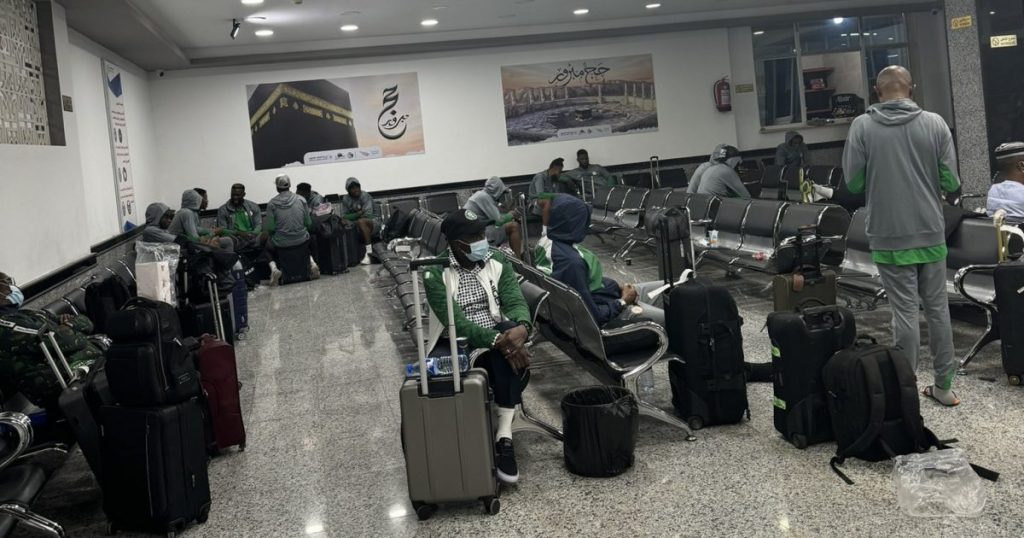The Nigerian Ministry of Foreign Affairs has initiated communication with the Nigerian Mission in Libya regarding the Super Eagles, the country’s senior men’s football team. The team had been scheduled to arrive in Benghazi for the second leg of their 2025 Africa Cup of Nations qualifier against Libya. However, during their flight, they were unexpectedly diverted to Al Abraq, a small airport primarily meant for hajj operations. This unforeseen turn of events left the players and officials stranded without any support from the Libyan Football Federation, which failed to arrange transportation for them.
In response to the situation, Nigerian Foreign Minister Yusuf Tuggar took to social media to inform the public about ongoing efforts to assist the stranded team. He shared that early on Monday morning, the contingent was provided with internet access and essential supplies. However, Tuggar expressed frustration that Libyan authorities had yet to grant the necessary permission for the Nigerian Mission to facilitate the team’s travel to Bayda City, where the airport is located. He emphasized that the Nigerian Mission, led by Ambassador Stephen Anthony Awuru, has been in constant communication with both the Nigerian Football Federation and the Libyan authorities since the incident.
The situation has sparked widespread criticism across Nigeria, with some citizens advocating for the immediate return of the Super Eagles to Nigeria, while others have condemned the Confederation of African Football for its slow response to the issue. The chaos surrounding the team’s unexpected diversion has highlighted the difficulties faced by African football teams when participating in away matches, emphasizing the need for enhanced support and coordination from governing bodies.
Super Eagles captain William Troost-Ekong has also voiced his discontent regarding the team’s treatment, recounting their ordeal of being stranded at the Al Abraq Airport for over 12 hours. He criticized the Libyan authorities for unexpectedly revoking their approved landing in Benghazi, leading to the team being locked in the airport without communication, food, or drink. Troost-Ekong described this experience as part of a series of mind games, reflecting broader frustrations that African players often encounter while playing in hostile environments.
The ministry’s proactive approach to address the situation has showcased the importance of diplomacy in sports, especially in a continent where political relations can significantly impact athletic events. Despite the adversities faced by the Super Eagles, the ongoing dialogue between Nigerian officials and their counterparts in Libya signals a concerted effort to resolve the matter swiftly. The ministry’s commitment to ensuring the safety and well-being of their national team highlights the significance of maintaining strong international relations in the realm of sports.
Ultimately, the experience of the Super Eagles in Libya serves as a reminder of the vulnerabilities faced by national teams in international competitions. It emphasizes the need for better infrastructure and coordination, particularly in regions where political instability and logistical challenges pose significant hurdles. As the situation develops, it remains to be seen how the Nigerian authorities will navigate the complexities of international sports diplomacy to ensure the safe passage and morale of their athletes, and whether lasting changes will arise from this episode to protect athletes in similar situations in the future.














